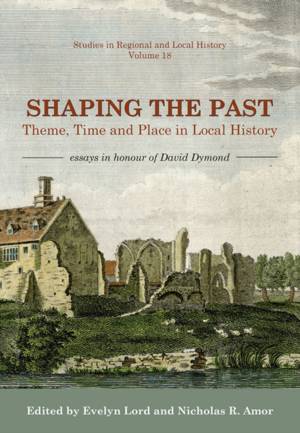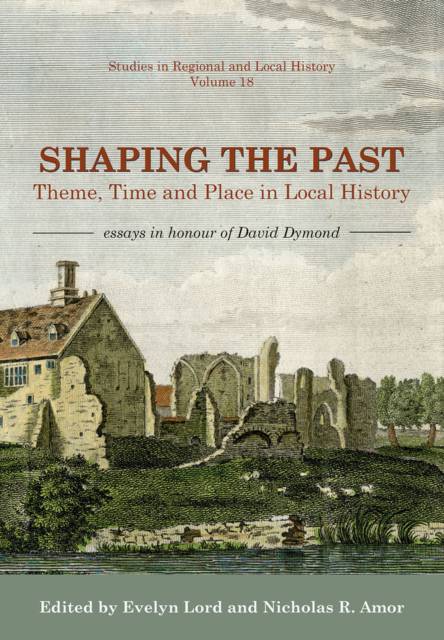
- Afhalen na 1 uur in een winkel met voorraad
- Gratis thuislevering in België vanaf € 30
- Ruim aanbod met 7 miljoen producten
- Afhalen na 1 uur in een winkel met voorraad
- Gratis thuislevering in België vanaf € 30
- Ruim aanbod met 7 miljoen producten
Shaping the Past
Theme, Time and Place in Local History - Essays in Honour of David Dymond
Omschrijving
Dr. David Dymond, a luminary in local history, is honored in this collection of essays by colleagues, friends, and students. These essays present new research spanning from the medieval era to the 20th century, with a focus on Eastern England. They embody Dymond's inclusive philosophy, integrating meticulous primary source analysis with sensitivity to broader community influences.
Contributors delve into medieval religion, trade, and industry in Eastern England, offering insights into local elites and social dynamics. The collection culminates with studies of 19th- and 20th-century commerce and culture. This diverse material provides a rich resource for anyone interested in local history, reflecting the breadth of Dymond's scholarship.
Specificaties
Betrokkenen
- Uitgeverij:
Inhoud
- Aantal bladzijden:
- 256
- Taal:
- Engels
- Reeks:
Eigenschappen
- Productcode (EAN):
- 9781912260225
- Verschijningsdatum:
- 1/10/2020
- Uitvoering:
- Hardcover
- Formaat:
- Genaaid
- Afmetingen:
- 171 mm x 248 mm
- Gewicht:
- 630 g

Alleen bij Standaard Boekhandel
Beoordelingen
We publiceren alleen reviews die voldoen aan de voorwaarden voor reviews. Bekijk onze voorwaarden voor reviews.







